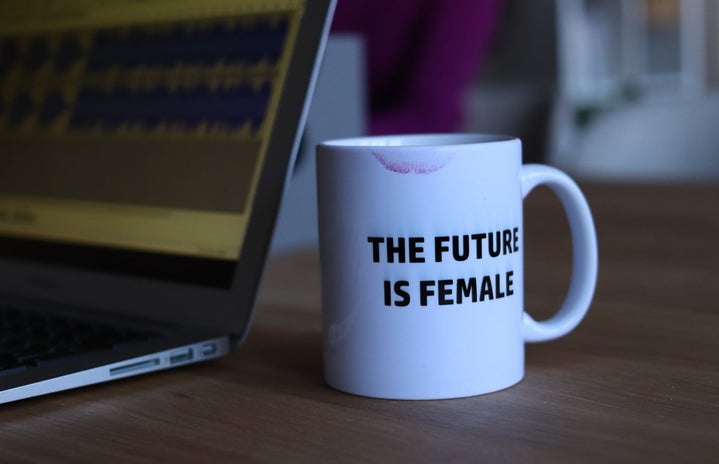I fell in love with The Shining the moment opening credits rolled. Growing up in the 2000’s, I was constantly bombarded by references and allusions to the cult classic. Despite Steven King being open about his distaste for Stanley Kubrick’s interpretation of his famous novel, the cult classic is worshiped by audiences, film critics, and horror fans such as myself for decades. However, since the film is a fine cocktail of classic seventies sexism and alcoholism, I decided to “tear apart” the movie from a feminist analysis standpoint. And because I am a self-proclaimed “Murderino”, the thing I was immediately drawn to was the abusive behavior of Jack Torrance.
It’s not uncommon for horror movies to put women in the position of abuse and it’s something just as scary as an elevator full of blood. Jack’s mounting resentment for Wendy is shown through verbal abuse, which can turn on a dime. Before his breakdown, Jack belittles Wendy, treating her like an annoying child when she tries to talk to him. Yet before and even after Jack loses it, he affectionately calls her “babe” and actively seeks love from her and Danny. Jack manipulates his family, abusing power to break down their self-esteem and control them, even in the absence of violence. Since this behavior was so commonly dismissed in the seventies, women subconsciously learned to bear psychological abuse inflicted by their spouses. This mentality is still present in our culture today, as people excuse or dismiss verbal abuse by saying “it could be worse”. The psychological abuse Wendy endures puts her and the viewer in an emotionally vulnerable state, which gives the film an upper hand in suspense and accurately portrays the culture around marriage and spousal abuse in the late-mid 1900’s that is still relevant today.
Jack’s abuse doesn’t end, however, as he has background with domestic violence. As told by Wendy, who nervously dismisses it as an accident, Jack dislocated Danny’s shoulder in drunken rage months before they moved into the hotel. He swears off drinking and promises never to hurt Danny or Wendy again, however returns to his old ways and sets out to kill them. Sadly, this is not unusual. Women are up to eight times more likely to suffer from domestic abuse at the hands of their partner. While domestic violence is typically frowned upon, it can still be dismissed by bystanders and victims alike. In the latter case, victims are afraid of what their abuser might do or how a person might dismiss their experience, especially under the all too common excuse of “boys will be boys”.
This fear ties into why Jack’s violence isn’t the only thing that’s troubling. Around the same time Jack becomes extremely violent, he is haunted by the Delbert Grady, who tells him to attack Wendy. This implies that Jack’s actions are not of his own accord and that he is controlled by another source, therefore subliminally shifting blame away from him as an abuser. Victim blaming or dismissal is a serious problem in rape culture, with courts and police that ask questions implying that a victim did something to earn cruel treatment or dismissing their accusations because of mental illness. When Jack threatens Wendy with an axe at the will of ghosts, it’s implied he isn’t making the choice to do so. These factors make The Shining a true product of the time but with many of these issues still present in modern culture, can audiences truly feel relieved thinking that Wendy Torrance’s nightmare is all fiction?
Wendy and Jack represent the ignorance and hurt women faced in the 70’s and to an extent, still face in our modern era. As viewers, it’s important to recognize the issues with our favorite media. Not so we can make some callout post, condemn the creation for its flaws, or remake it without its original “pulp”, but so we can make new media that puts thought into the issues we care about while retaining that pulpy, gory horror that you love. You can love something while still criticizing it and acknowledging its flaws. That’s why I loved getting to “tear apart” The Shining, because as a creator, I can learn from its flaws and build on it with my own stories. And I hope that someday, someone does the same to my creation.


